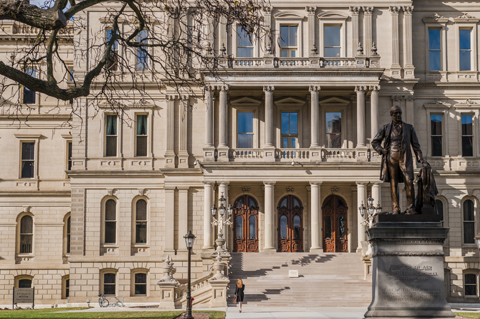Michigan State University’s Institute for Public Policy and Social Research is bringing together leadership training programs from across the country for the first-ever national  summit of programs like MSU’s Michigan Political Leadership Program.
summit of programs like MSU’s Michigan Political Leadership Program.
IPPSR is recipient of an $80,000 grant from the Madison Initiative of the William and Flora Hewlett Foundation to survey state candidate leadership programs and share the best of their recruiting, training and financing.
Political leadership programs will meet May 21, 2018 in Menlo Park, CA.
“The day-long summit is designed to introduce state-based organizations and draw them together to explore ways to expand opportunities to share information and best practices,” said Matt Grossmann, IPPSR director and a nationally recognized political scientist.
IPPSR combines policy education, political leadership training and survey research as a unit if MSU’s College of Social Science. MPLP is one of IPPSR’s best-known programs along with its Public Policy Forums, Office for Survey Research, State of the State Survey and Legislative Leadership Program training legislators and their staff.
MPLP was launched in 1992, at a time when term limits were developing, to identify potential candidates and help them prepare to run successful campaigns for elective office. Each year, 24 MPLP Fellows are chosen.
Each year, MPLP selects 12 men and 12 women, equal numbers of Republicans and Democrats, as MPLP Fellows Fellows travel the state to learn civil engagement, ethical governance, effective media relations, stewardship, personal leadership and evidence-based policymaking.
The grant will allow a comprehensive inventory of the program and a comparison of program structure, curriculum, costs and support, political emphasis, scope, history, recruiting and tracking of results across programs, Grossmann said.
The Hewlett Foundation’s nonpartisan Madison Initiative supports leadership and relationships that strengthen Congress as an institution, improve campaign finance and electoral rules and foster bipartisan problem-solving.